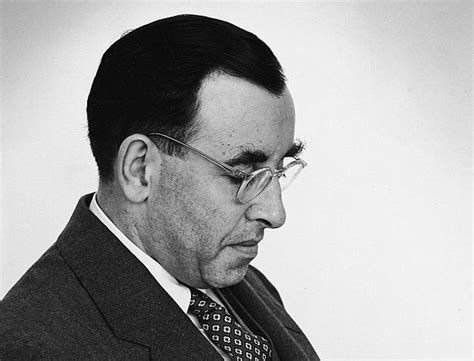A Quote by Elisabeth Kubler-Ross
For those who seek to understand it, death is a highly creative force. The highest spiritual values of life can originate from the thought and study of death.
Related Quotes
Take life as it comes and death as it comes. Death is really beautiful; if it were a bad thing, God would not let it happen to us. It is really freedom, an entry into another, higher life. We must utilize this life in order to realize the life beyond this one. Beyond this earth garden is the infinite land wherein we meet those whom we have thought lost. Although we must not seek death, when it comes we should know that it is the final examination for a great reward.
Everybody is afraid of death for the simple reason that we have not tasted of life yet. The man who knows what life is, is never afraid of death; he welcomes death. Whenever death comes he hugs death, he embraces death, he welcomes death, he receives death as a guest. To the man who has not known what life is, death is an enemy; and to the man who knows what life is, death is the ultimate crescendo of life.
The greatest mystery in life is not life itself, but death. Death is the culmination of life, the ultimate blossoming of life. In death the whole life is summed up, in death you arrive. Life is a pilgrimage towards death. From the very beginning, death is coming. From the moment of birth, death has started coming towards you, you have started moving towards death.
Birth leads to death, death precedes birth. So if you want to see life as it really is, it is rounded on both the sides by death. Death is the beginning and death is again the end, and life is just the illusion in between. You feel alive between two deaths; the passage joining one death to another you call life. Buddha says this is not life. This life is dukkha - misery. This life is death.
We tend to suffer from the illusion that we are capable of dying for a belief or theory. What Hagakure is insisting is that even in merciless death, a futile death that knows neither flower nor fruit has dignity as the death of a human being. If we value so highly the dignity of life, how can we not also value the dignity of death? No death may be called futile.
Those who look at the surface of the sea must behold the birth and death of the waves, but those who seek the depths of the ocean behold one indivisible mass of water. Similarly, those who acknowledge "life" and "death" are tossed by sorrow, while those who live in the illimitable superconsciousness behold and feel the One Ineffable Bliss.
Woman possesses the cosmic force of an element, an invincible force of destruction, like nature's. She is, in herself alone, all nature! Being the matrix of life, she is by that very fact the matrix of death - since it is from death that life is perpetually reborn, and since to annihilate death would be to kill life at its only fertile source.
Laughter. Yes, laughter is the Zen attitude towards death and towards life too, because life and death are not separate. Whatsoever is your attitude towards life will be your attitude towards death, because death comes as the ultimate flowering of life. Life exists for death. Life exists through death. Without death there will be no life at all. Death is not the end but the culmination, the crescendo. Death is not the enemy it is the friend. It makes life possible.
By 'coming to terms with life' I mean: the reality of death has become a definite part of my life; my life has, so to speak, been extended by death, by my looking death in the eye and accepting it, by accepting destruction as part of life and no longer wasting my energies on fear of death or the refusal to acknowledge its inevitability. It sounds paradoxical: by excluding death from our life we cannot live a full life, and by admitting death into our life we enlarge and enrich it.


































